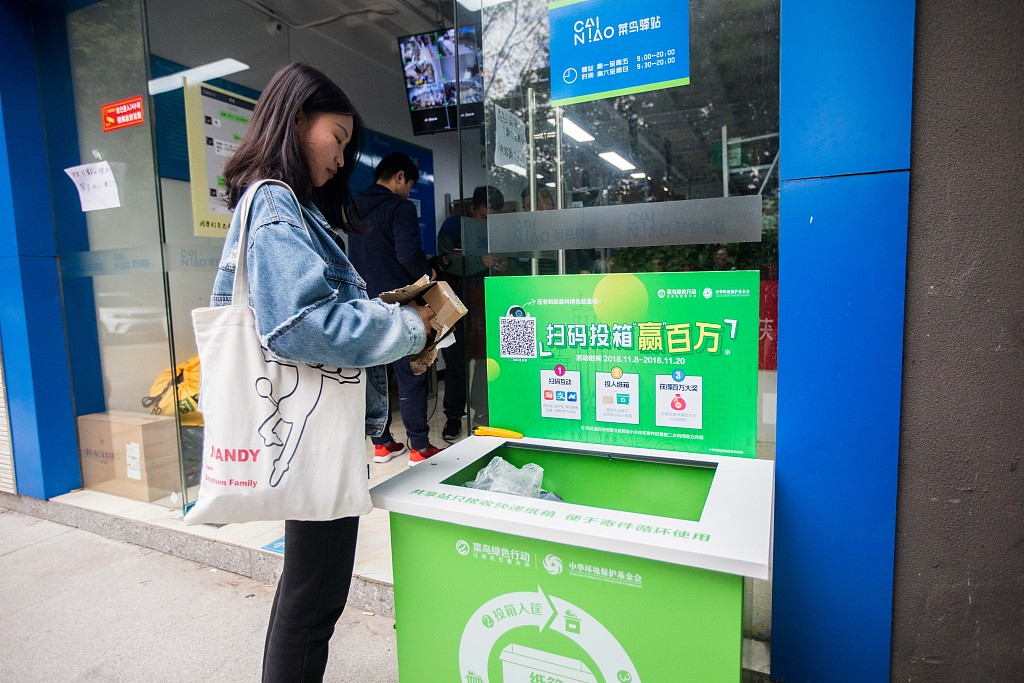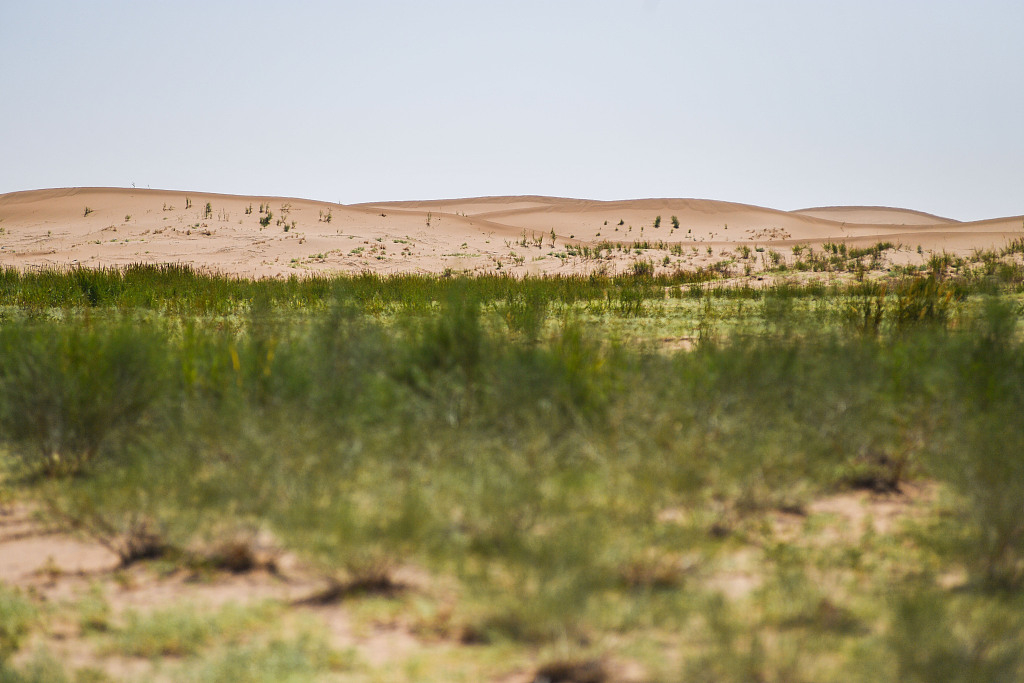Mascara, contact lenses, a new smartphone: These are some of the products He Xiaocong purchased on Double Eleven, the world's biggest online sales holiday. Alibaba, the Chinese e-commerce giant who's promoted the shopping festival since 2009, reported it hit 158.31 billion yuan in sales (30.8 billion U.S. dollars) in the first nine hours, up 25 percent from last year. Lured by sometimes heavy discounts, "I spent definitely more than last year," He, who works for a large international IT company in Beijing, told CGTN Digital.
On the other hand, her friend Tan Jinmiao, a student in one of Beijing's universities, boycotted the shopping event this year. Long delivery times, intense competition among sellers, and her minimalist lifestyle all contributed to her choice. "Why join this crazy party?" she asked, adding that the e-commerce event would only add to environmental pollution.
Easier recycling
As the shopping fest enters its 11th year, consumers, vendors, delivery companies and e-commerce platforms are increasingly trying to strike a balance between economic growth and its impact on the environment.
China's economy is driven by domestic consumption, and Double Eleven is a major milestone in making the country the world's biggest market for online retail. At the same time, packaging from e-commerce makes up 85 percent of the newly-added household waste in large and medium-sized cities in China, Wu Changhua, CEO of the Beijing Future Innovation Center, wrote in an opinion piece for CGTN Digital.
"I would like to recycle the packaging, but don't know how," He said. "Maybe they can set up a recycling bin just for packaging in the compound," she suggested.
Express delivery companies this year indeed set up 35,000 recycling stations nationwide where people can return their opened packages, to make recycling accessible to a broader audience, Xinhua reported.

Dumping her delivery parcel at a recycling station during 2018's Double Eleven. /VCG Photo
Dumping her delivery parcel at a recycling station during 2018's Double Eleven. /VCG Photo
Zero-waste packaging
Fresh Farm Plus, a subscription delivery service for farm produce based in China's northern city of Tianjin, goes a step further than recycling in offering zero-waste packaging and cotton cloths instead of plastic bags. Clients receive their goods in reusable boxes that are directly returned to the courier upon reception.
"It's the future," founder Daniel D'Urso, who has lived in China for 13 years, told CGTN Digital. "There's not going to be more waste as consumers in China are getting more educated and they are going to demand that." However, environmental values come with a price tag. The reusable boxes cost 150 yuan in production, a cost that clients sustain with the subscription fee of 236 yuan (33 U.S. dollars) per box. D'Urso set up zero-waste packaging in response to his customers' needs, he said, and his personal beliefs. "It is an investment that the vendor and customer make together if they believe in the same values and principles."

"Ant Forest" in Wuqin Minqin County of northwest China's Gansu Province helps reduce the extension of the Tengger Desert. Ant Financial, an Alibaba affiliate, was awarded the UN Champions of the Earth for their tree planting initiative that encourages online shoppers to reduce their carbon footprint. /VCG Photo
"Ant Forest" in Wuqin Minqin County of northwest China's Gansu Province helps reduce the extension of the Tengger Desert. Ant Financial, an Alibaba affiliate, was awarded the UN Champions of the Earth for their tree planting initiative that encourages online shoppers to reduce their carbon footprint. /VCG Photo
Shop and plant a tree
Alibaba, too, has realized that consumers are increasingly becoming more environmentally conscious. For using Alipay, an affiliate financial service of Alibaba, clients collect "green energy" points that they can choose to exchange for new trees planted in China's desert regions. "Ant Forest" is China's largest private sector tree-planting initiative, and won the UN's Champions of the Earth award in August this year for inspiring people to reduce their carbon footprint. Other platforms have offered consumers discounts for trading in their old electronics for new ones in an effort to boost recycling and reduce electronic household waste, CCTV news reported.
Chinese consumer behavior has changed in recent years, with the growing middle class upgrading their consumption habits. Tan remembers that during her high school years, classmates were queuing in front of the only computer in class for Double Eleven. Today, people are shopping from their smartphones, with many putting a more eco-friendly lifestyle on their shopping list.
(Cover: Packaging from e-commerce makes up 85 percent of the newly-added household waste in large and medium-sized cities in China. During 2019's Double Eleven, parcel deliveries are expected to skyrocket again, as Alibaba reported sales went up 25 percent from last year during the first nine hours of the event. /VCG)